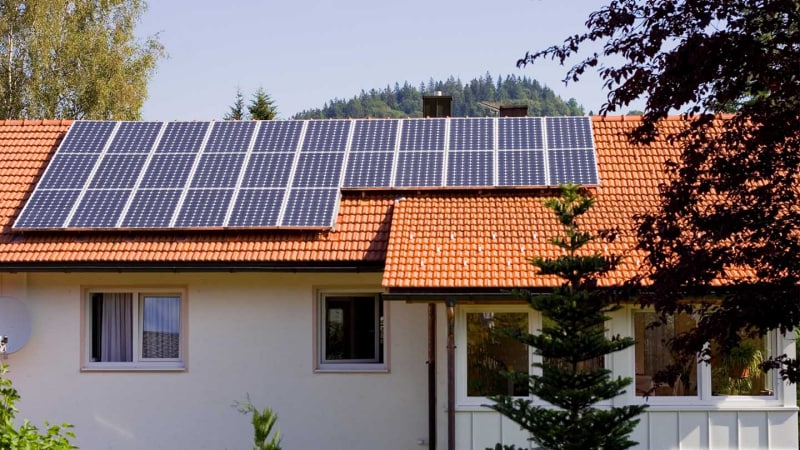Understanding FHA cash-out refinance

Quick insights
- With an FHA cash-out refinance, you can access cash from your home equity by refinancing for more than you owe and receiving the difference in cash.
- FHA cash-out refinance allows lower credit scores which can help make qualifying easier, but you may pay higher interest rates if your credit isn’t strong.
- To qualify, you must maintain at least 20% equity in your home, meaning you can borrow up to 80% of your home’s appraised value.
An FHA cash-out refinance could be worth exploring whether you want to pay off debt, fund a renovation or build a financial cushion. This option allows you to access the value you’ve built in your home—without selling it. In this article, we’ll cover what an FHA cash-out refinance is, how it works and the key pros and cons to help you decide if it’s the right move for you.
What is an FHA cash-out refinance?
An FHA cash-out refinance is a mortgage option that lets homeowners refinance an FHA loan for more than they owe by taking the difference in cash. ’This program can be an ideal loan option for certain borrowers.
How an FHA cash-out refinance works
With an FHA cash-out refinance, you apply for a new mortgage that’s larger than your current loan balance. The new loan pays off your existing mortgage, and you receive the difference as a lump sum of cash. To qualify, you must meet FHA guidelines, including owning and living in the home as your primary residence for at least 12 months and maintaining at least 20% equity after the refinance. You’ll also need to meet credit and income requirements, then pay mortgage insurance premiums (MIP) on the new loan.
Pros and cons of an FHA cash-out refinance
Here are some potential benefits and downsides to a cash-out refinance:
Pros:
- Credit score requirements
- Interest rates
- Access to cash for home renovations, debt consolidation or other needs
Cons:
- Requires payment of mortgage insurance premiums
- May increase your monthly mortgage payments
- Must maintain at least 20% equity to qualify
FHA cash-out refinance requirements
To qualify for an FHA cash-out refinance, homeowners must meet several key requirements set by the Federal Housing Administration and individual lenders. Here are some examples:
- Minimum 20% home equity: You must have at least 20% equity in your home to qualify for the refinance.
- Maximum 80% loan-to-value (LTV) ratio: Your new loan can’t exceed 80% of your home’s current appraised value. For example, if your home is worth $300,000, the most you could borrow through an FHA cash-out refinance would be $240,000. The remaining 20% must remain as equity in the home.
- Credit score of 500 or higher: FHA allows credit scores as low as 500, though many loan providers may require a higher score.
- Acceptable debt-to-income (DTI) ratio: Your monthly debt payments, including your new mortgage, must fall within FHA’s DTI limits.
- Proof of income and ability to repay: You must demonstrate that you can afford the new loan payments based on your income and financial profile.
- Occupancy requirement: The property securing the cash-out refinance must be owned and occupied by at least one borrower as their primary residence for the 12 months prior to the date of the FHA case number assignment.
- Good payment history: You must be current on your existing mortgage with no late payments in the past 12 months.
- Mortgage insurance: FHA loans require both upfront (UFMIP) and annual MIP, which adds to your overall loan costs.
How to get an FHA cash-out refinance
Getting an FHA cash-out refinance involves a few important steps. Here’s how the process typically works:
- Check your eligibility: Make sure you meet the FHA’s requirements for credit score, equity and income.
- Compare lenders: Shop around to find an FHA-approved lender offering competitive rates and terms.
- Submit your application: Complete the loan provider’s application and provide financial documentation such as pay stubs, tax returns and bank statements.
- Undergo a credit check: The mortgage provider will evaluate your credit history to determine your loan eligibility.
- Schedule a home appraisal: An FHA-approved appraiser will assess your home’s current market value to determine how much equity you can access.
- Get loan approval: If everything checks out, your lender will approve your refinance.
- Close the loan: Sign the final paperwork, and once the loan closes, you’ll receive the cash from your refinance.
- Review your finances: Before proceeding, carefully evaluate how the new loan fits into your long-term financial goals.
In summary
An FHA cash-out refinance can be a helpful way to turn your home equity into cash. FHA cash-out refinance allows homeowners to access a certain amount cash depending on their home equity. It’s important to understand the benefits, drawbacks, eligibility criteria and application process.



